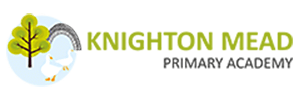At Knighton Mead we recognise how vital oracy skills are for children and we want to equip them with the tools they need to be heard, not just in school, but in their future career and life. Many of our pupils start early school life without the Oracy skills relevant for their age. We strive to develop their spoken language skills through our Oracy based curriculum, dialogic classrooms and the ethos of our staff. At Knighton Mead we hold high expectations of spoken language and children’s listening skills this is upheld by the whole school community. Oracy is embedded in all year groups and all children are exposed to talk rich environments. We aim to give children their own voice as we believe this is vital for their future success. We strive for all children to be confident to express their own opinion and ideas in a respectful and supportive environment. We see Oracy as part of the school’s pedagogy, not a standalone lesson or subject and we expect it to be threaded through the daily school life. By the time children leave Knighton Mead, our hope is that they can speak clearly to a variety of audience, to articulate and express their thoughts and ideas and conduct and participate in respectful discussions.
National Curriculum Aims:
Speaking and Language
Pupils should be taught to:
- listen and respond appropriately to adults and their peers.
- ask relevant questions to extend their understanding and knowledge.
- use relevant strategies to build their vocabulary.
- articulate and justify answers, arguments and opinions.
- give well-structured descriptions, explanations and narratives for different purposes, including for expressing feelings.
- maintain attention and participate actively in collaborative conversations, staying on topic and initiating and responding to comments.
- use spoken language to develop understanding through speculating, hypothesising, imagining and exploring ideas.
- speak audibly and fluently with an increasing command of Standard English.
- participate in discussions, presentations, performances, role play, improvisations and debates.
- gain, maintain and monitor the interest of the listener(s).
- consider and evaluate different viewpoints, attending to and building on the contributions of others.
Early Learning Goals:
Communication and Language ELG:
Listening, Attention and Understanding Children at the expected level of development will:
- Listen attentively and respond to what they hear with relevant questions, comments and actions when being read to and during whole class discussions and small group interactions.
- Make comments about what they have heard and ask questions to clarify their understanding.
- Hold conversation when engaged in back-and-forth exchanges with their teacher and peers.
Speaking Children at the expected level of development will:
- Participate in small group, class and one-to-one discussions, offering their own ideas, using recently introduced vocabulary.
- Offer explanations for why things might happen, making use of recently introduced vocabulary from stories, non-fiction, rhymes and poems when appropriate.
- Express their ideas and feelings about their experiences using full sentences, including use of past, present and future tenses and making use of conjunctions, with modelling and support from their teacher.
Subject Policies/Plans
Subject Leader/s
Miss Chaudhry

